Drums played and smiles stretched wide as Standard 7 students celebrated their graduation this month. In Tanzania, Standard 7 marks the final year of primary school, after which students continue to Form 1, the first year of secondary school.
This milestone represents a new chapter of learning and growth, filled with excitement, opportunities, and the promise of greater challenges ahead.
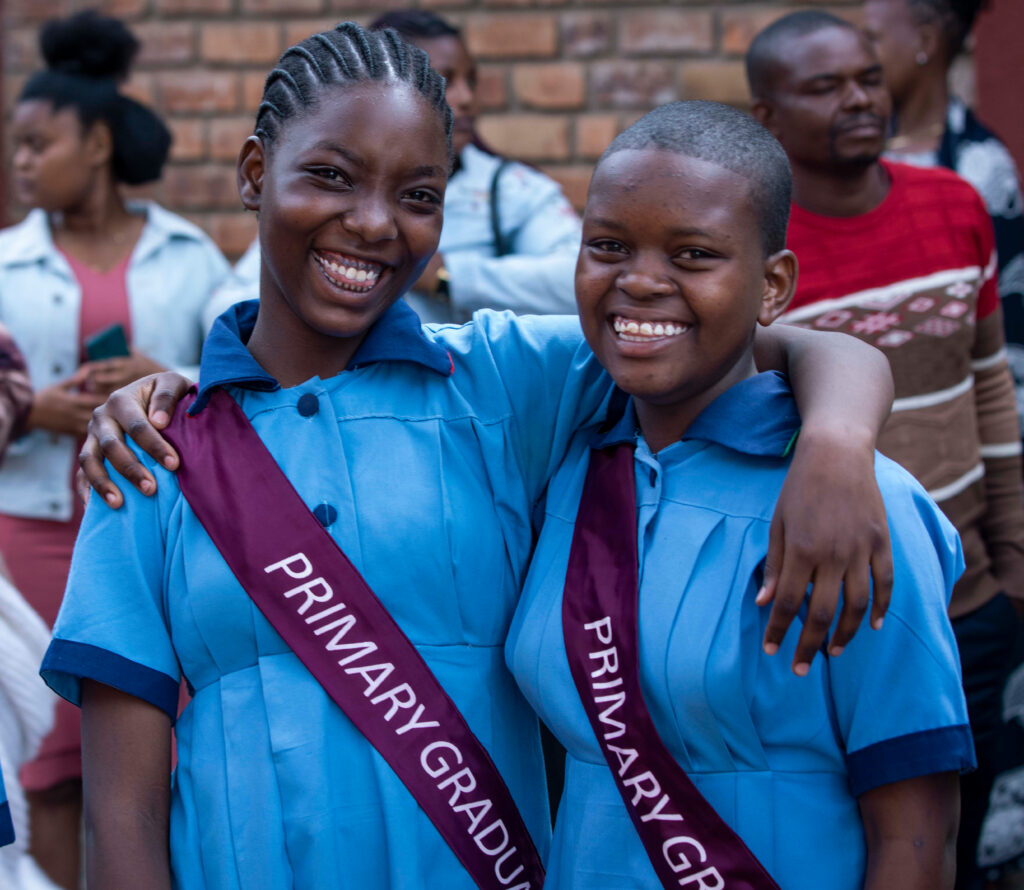
This year’s graduation was a memorable celebration, attended by teachers, parents, and invited guests who came together to honour the students’ dedication and achievements. True to tradition, the graduates excelled in the Tanzanian National Standard 7 Examinations, demonstrating their discipline and the strong guidance of their teachers. The School of St Jude has a proud history of academic excellence, with 100% of students passing the National Standard 7 Examinations for the past 14 years.
To mark their success, students, staff and visitors enjoyed a special lunch together, creating a warm and joyful atmosphere that added to the excitement of the day. The graduation ceremony was filled with music, speeches, cultural performances and proud applause as each student was recognised for their achievements.
Roman, a Standard 7 graduate says he is looking forward to taking the next steps in this academic journey, with hopes to join the school soccer team in Form 1.
“I’m excited because I’ll be having new experiences in Form 1. My parents and teachers advise me to put in a lot of effort in my studies every day. I am eager to learn new subjects like biology and chemistry,” says Roman.
Fellow Standard 7 graduate Agape also shared his excitement about moving on to secondary school and exploring new subjects.
“Science and math are my favourite subjects because I want to be a scientist. Learning new subjects like chemistry and mixing up some chemicals excites me. Like other great scientists like Isaac Newton, I want to be a great scientist and be featured in books,” she says.
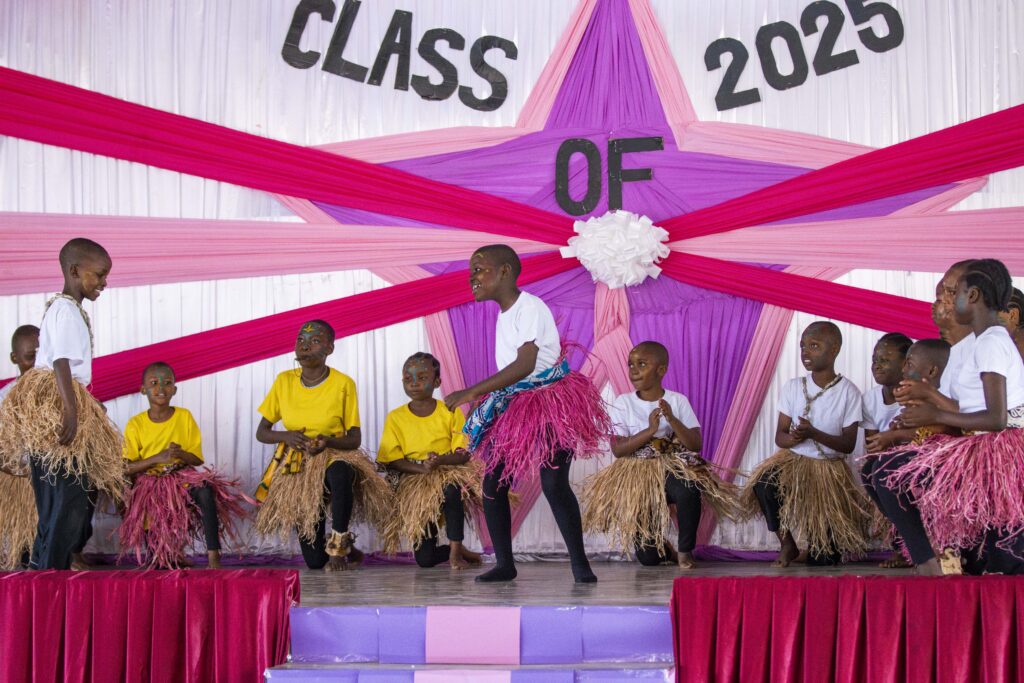
A huge congratulations to all our Standard 7 graduates! Your hard work, determination, and achievements inspire us all, and we cannot wait to see the incredible things you will accomplish in the years ahead.
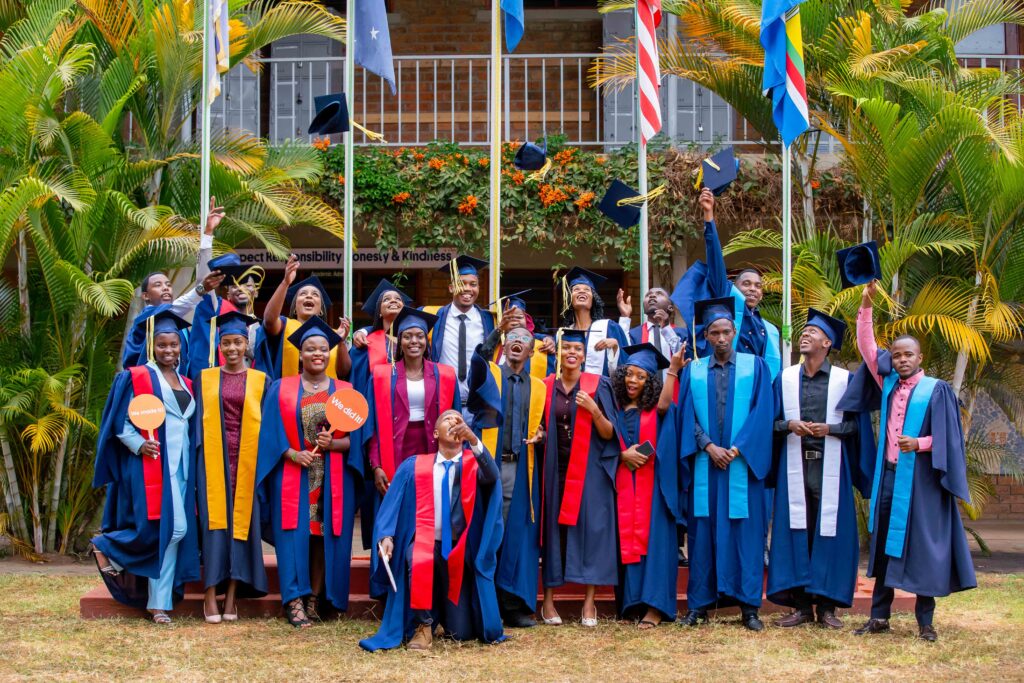
Earlier this month, The School of St Jude shone in hues of gold, blue, white and red as 121 proud alumni tertiary graduates tossed their caps high into the air during the 2025 Beyond St Jude’s Recognition Ceremony.
The annual event recognises alumni who have completed diploma or degree programs at higher learning institutions across Tanzania and beyond, marking the transition from student to professional for dozens of young changemakers.
Established in 2022, the Beyond St Jude’s Recognition Ceremony has become a key part of the school’s calendar, giving tertiary graduates the chance to return to St Jude’s and celebrate, with their family and friends, in the place where it all began.
This year’s ceremony was the biggest yet, bringing together 121 alumni, including 10 new medical doctors.
Student speaker, Alfred, who is graduating as a medical doctor, expressed his gratitude to those who made the journey possible, from Founding Director Gemma Sisia to parents and guardians, sponsors, donors and academic teams.
“We are gathered not only as graduates of universities across Tanzania and beyond, but as proud sons and daughters of The School of St Jude, where our journey began and where our hearts will always return. We are proud to say that St Jude’s alumni are now in every corner of Tanzania where change is needed. We are proof that education, when wrapped in love and service, can break the cycle of poverty,” he says.
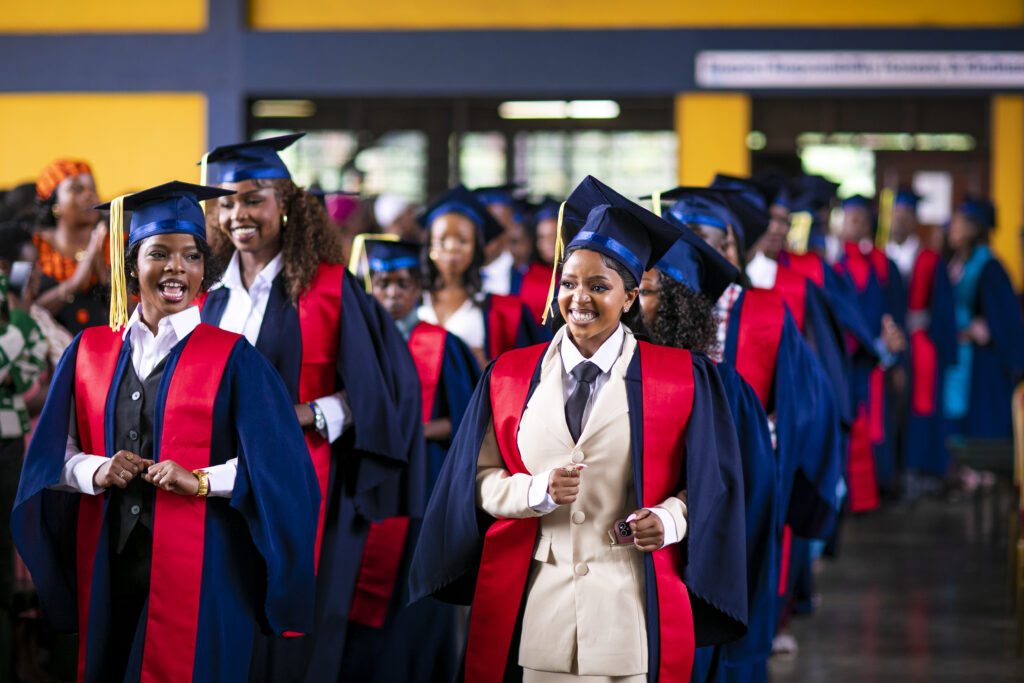
Guest of Honour, Prudence Masako, Country Director for CARE International in Tanzania, inspired graduates to remain lifelong learners and agents of change.
“Be life-long learners, the world is changing fast. Don’t let your degree be the end of your learning; let it be the beginning. Read widely, ask questions, seek mentors and never, never stop growing. Success is measured not by what you earn but by the differences you make. Serve your family, your community and your country. Tanzania needs your leadership, your innovation and your courage,” she says.
Mussa, Beyond St Jude’s Scholarship Program and Career Development Programs Manager, echoed this message, reminding graduates to hold onto the school’s core values: Respect, Responsibility, Honesty and Kindness.
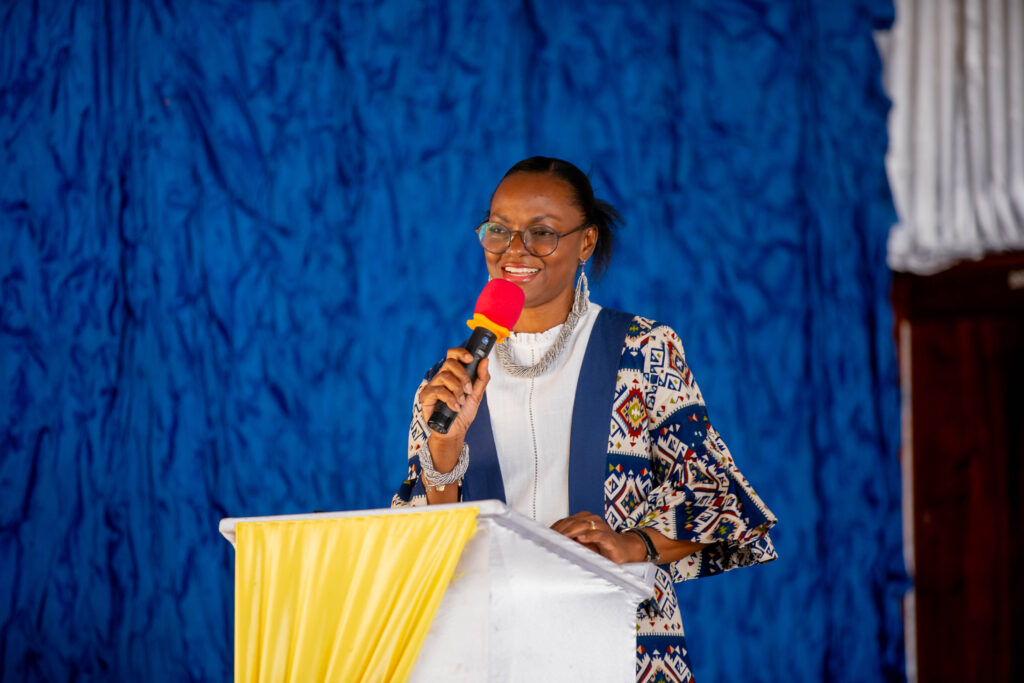
“You have walked a long journey to reach this day. You have faced challenges, made sacrifices and pushed through moments of doubt. Yet, here you are: strong, prepared and ready for the next chapter of your lives. At The School of St Jude, we do not just measure success in certificates, but in the leaders, problem-solvers and changemakers we send out into the world. You are now ambassadors of this great institution. Tanzania, and the wider world, needs your brilliance, compassion and determination. Go, and make us all proud,” he says.
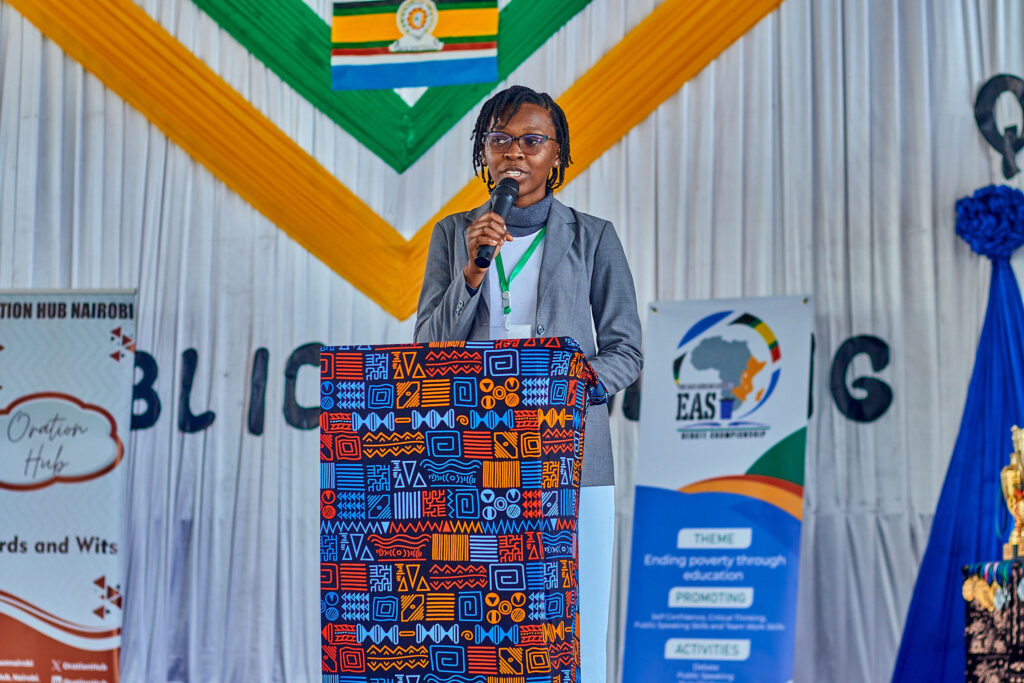
With heavy preparations and the microphones ready, the stage was set. From Kenya and Uganda, to Rwanda, Tanzania, and even Burundi, students came together here at The School of St Jude, Smith Campus. This was not just a normal gathering; it was a celebration of ideas, persuasion, and the art of speaking truth with passion.
The East African Schools Debate Championships is one of the biggest competitions hosted annually in Tanzania that features academic sports like debate, public speaking, and quiz. This tournament not only brings students together, but also sharpens the communication skills of the young East African generation.
Mr Joseph, Head of Languages at St Jude’s Secondary and public speaking club mentor, chaired the organising committee for the tournament. He says he is very proud to be a part of the team that nurtures young minds.
“It was great for students from other countries to experience the St Jude’s values and culture. Nothing beats the feeling of bringing young voices to one platform,” he says
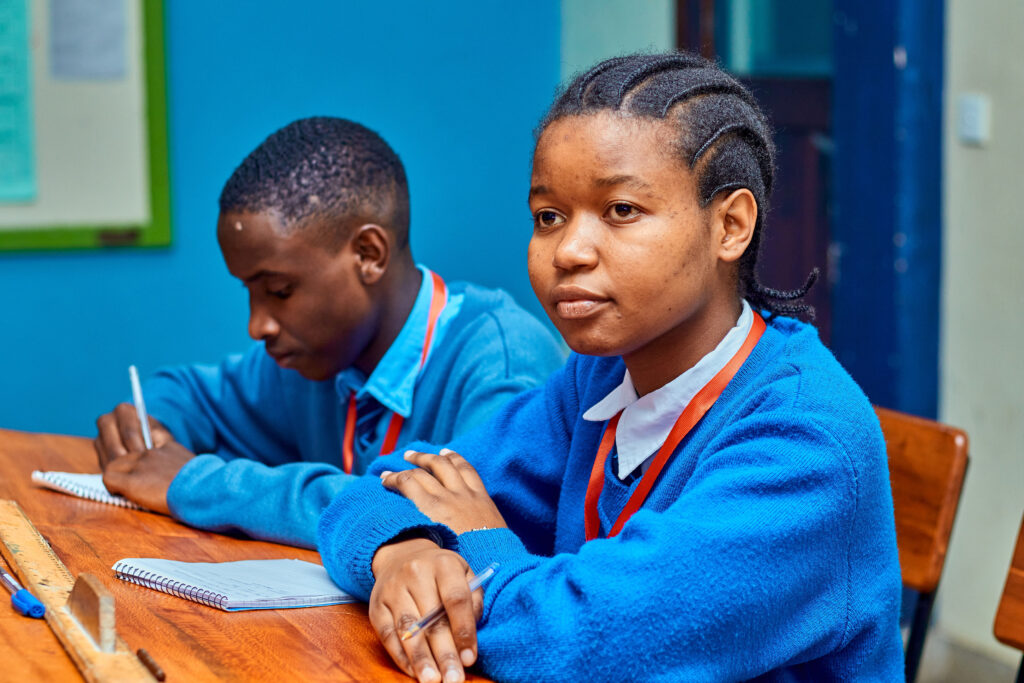
Barriers were certainly broken this year, with over 350 students from across East Africa attending the tournament: an increase of more than 150 from last year. Over 40 students from St Jude’s had the invaluable opportunity to learn from the best young debaters and speakers across the region.
Uganda took home the top prize in the debate category, while Kenya earned the top award in public speaking. St Jude’s was well represented, with three students making it to the final six in the public speaking competition.
One of those finalists was Form 5 student Lillian, who was thrilled to be able to represent
St Jude’s.
“The tournament was challenging. There were lots of students from across East Africa and it was very competitive. When my name was mentioned as one of the finalists, I was really nervous, but I had so much fun participating,” she says.
Lillian, who especially enjoyed the debate section of the competition, explains that delivering a strong speech requires strong preparation. Like many of her fellow students, she is an active member of the public speaking and debating clubs at St Jude’s, where students meet weekly to sharpen these
essential skills.
“In our public speaking and debating clubs, we learn more about how to become better speaker. We also get to practise at competitions like this. We believe that practice beats talent. It starts with believing
in yourself, then being confident, and never giving up,” she says.
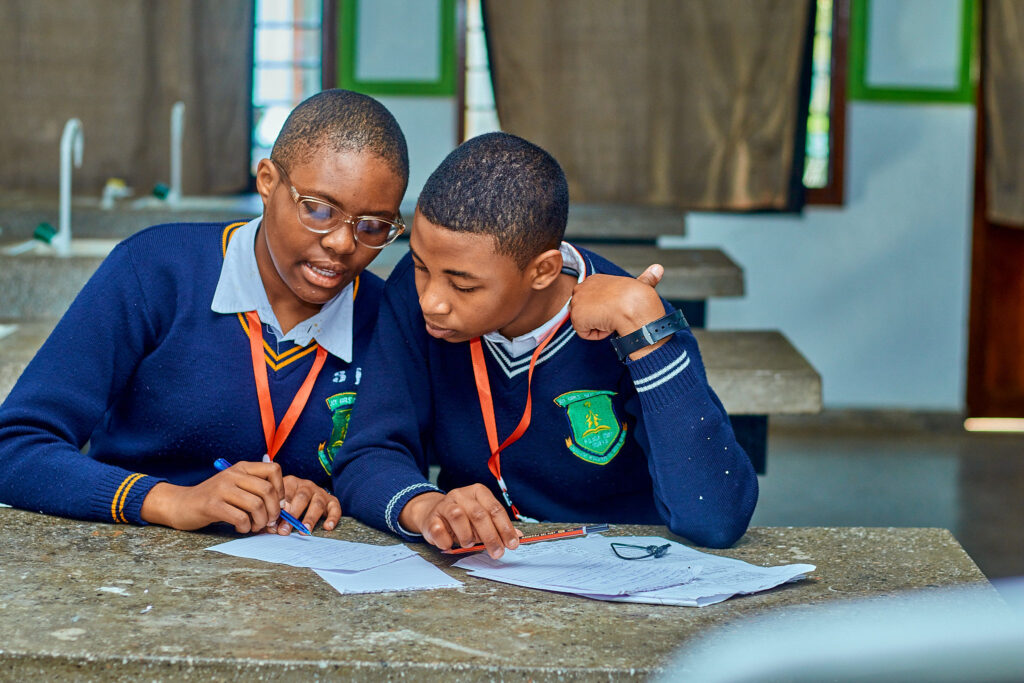
St Jude’s also proudly secured second place overall in the tournament, a testament to the hard work and dedication of both the students and the staff. Both Mr Joseph and Lillian believe that opportunities like this competition are important in helping students develop key 21st century skills.
“We have seen many students from Uganda, Kenya, Burundi travelling long distance to come in this tournament. We’re already looking forward to next year and hope we will have even more students participating in 2026,” says Mr Joseph.
As the curtains closed on this year’s East African Schools Debate Championships, the energy, passion, and determination of the students left a lasting impression. With each debate made and every speech delivered, the students demonstrated that they are not only ready to be heard but are already becoming the voices of change across East Africa.
This year’s theme, “Living Our Tanzanian Identity,” was vividly brought to life by our students through a vibrant array of activities, including fashion shows, traditional dances, drama, and delicious local cuisine. Events like this offer a wonderful opportunity to experience the vibrant diversity of our community and the richness of Tanzanian culture.
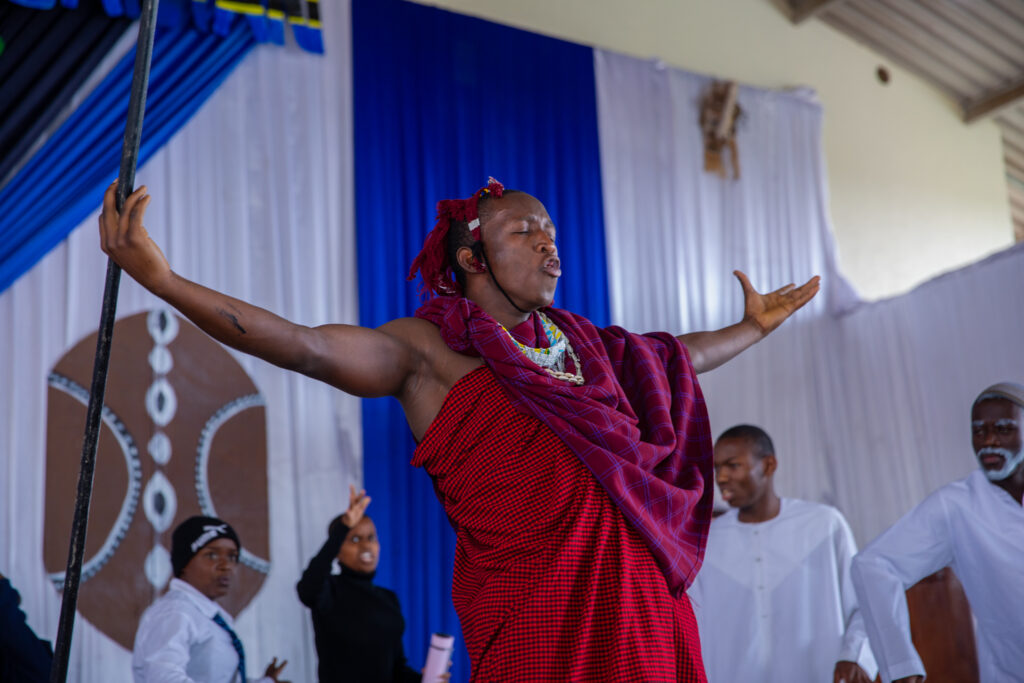
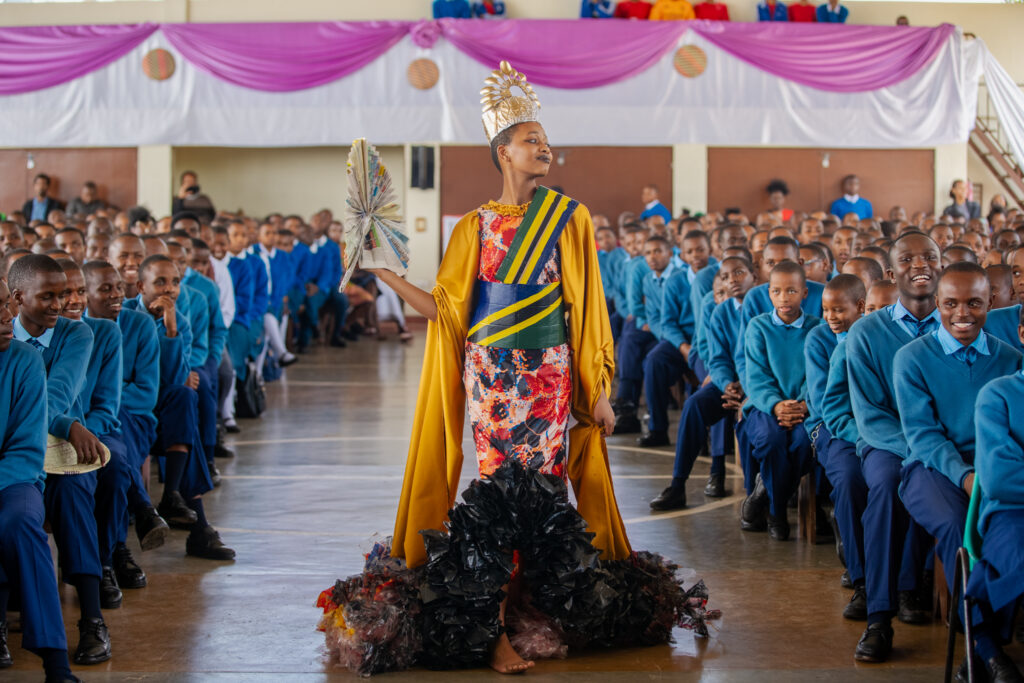
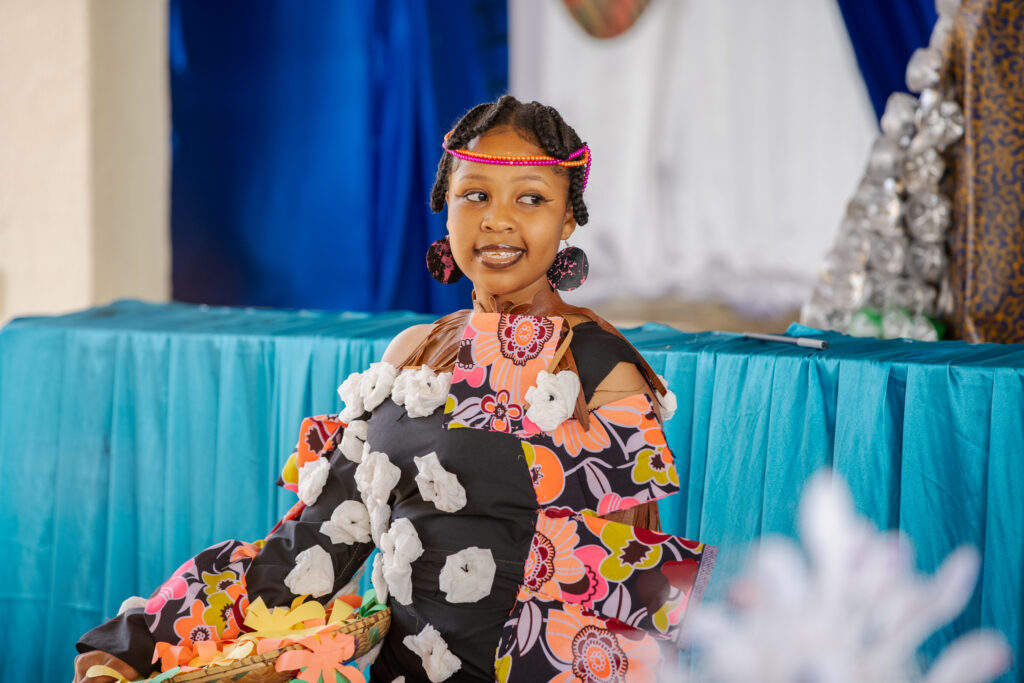
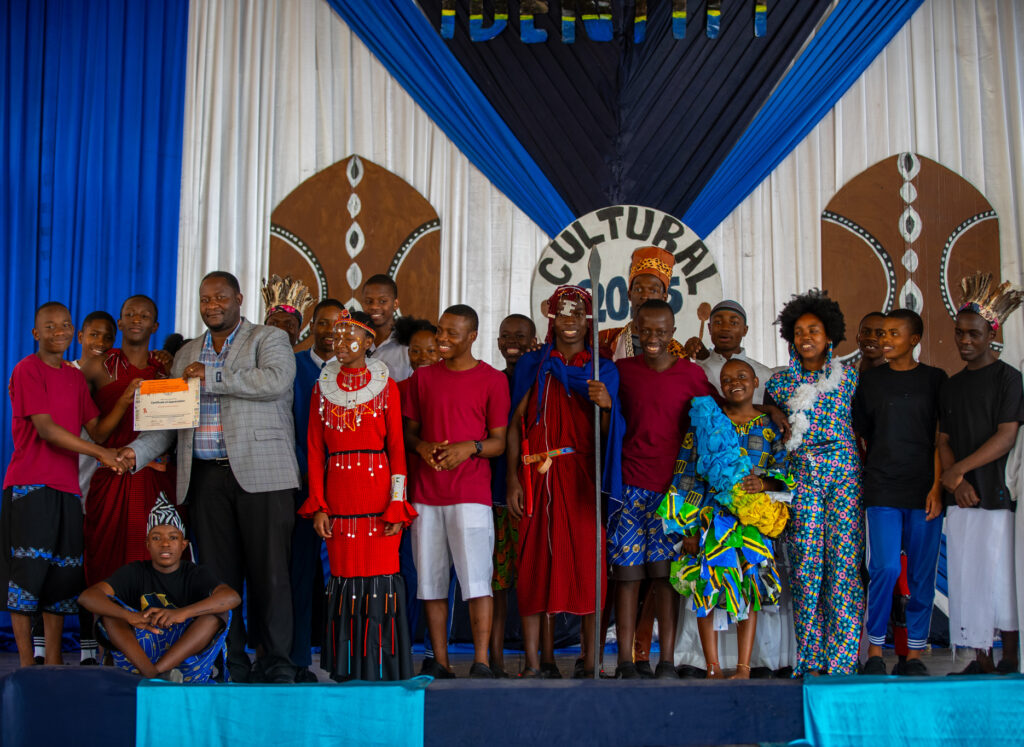
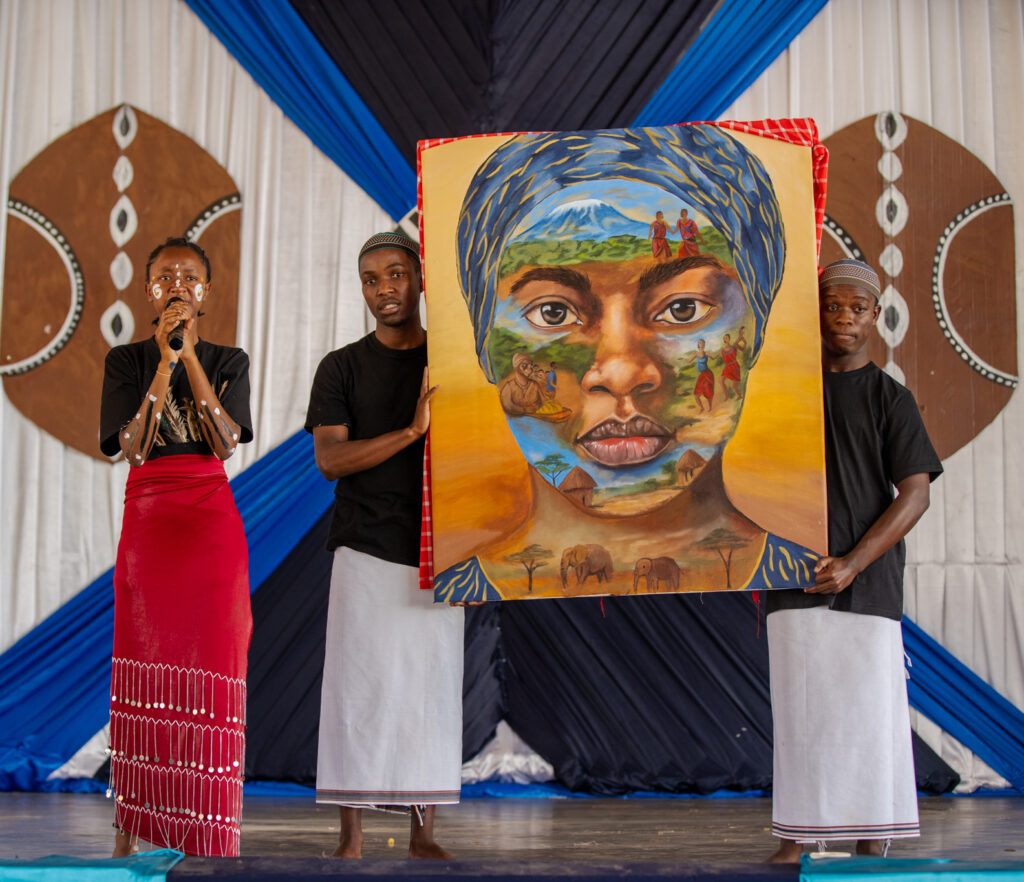
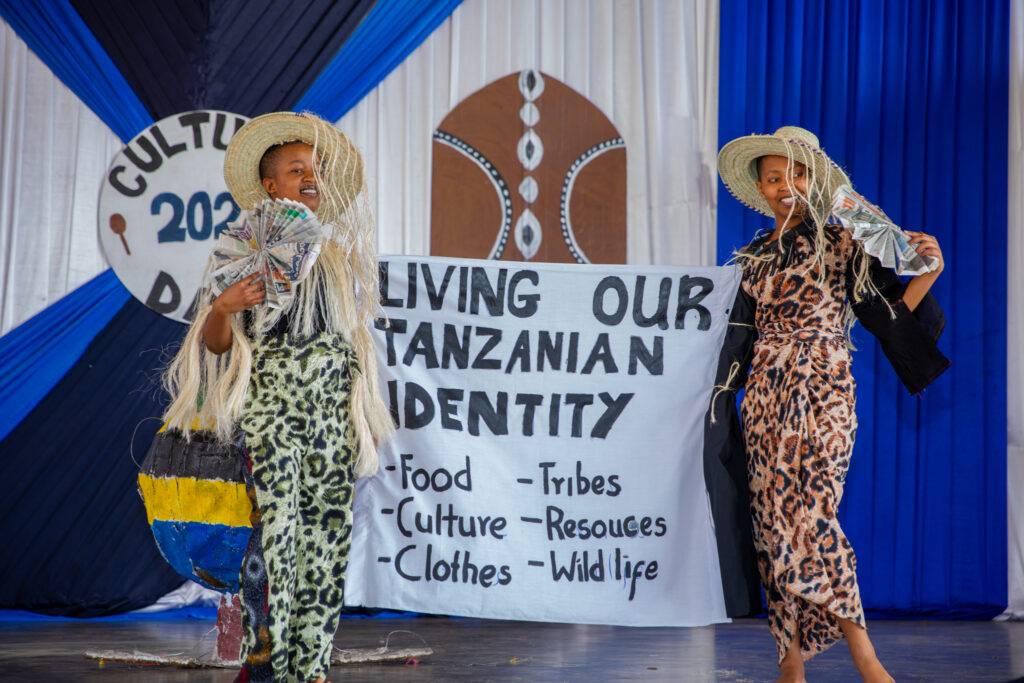
With rhythmic drumbeats and powerful footwork, the girls’ school dance team commanded the stage at this year’s UMISSETA national arts and sports competition, clinching first place in the Arusha region and ranking third overall in Tanzania’s traditional dance category.
UMISSETA (Umoja wa Michezo na Sanaa kwa Shule za Sekondari Tanzania, or Union of Sports and Arts for Secondary Schoolsin Tanzania) is a major national event that brings together secondary school students from across the country. Organised by the Ministry of Education, the competition aims to identify and nurture young talent in both sports and the performing arts.
Led by their squad captain, Faith, a Form 4 student and entertainment prefect at The School of St Jude, the 25-member team advanced through the different stages of the competition with unwavering dedication.

“This competition started in May and we started at the regional level, where we had a competition with other districts in Arusha. We had two districts competing, Mount Meru District and Arusha City. It was here that we qualified to go to the national level,” says Faith.
Rehearsals started back in March, with Mr Samson, the school’s music and arts teacher and team coach, organising twice-weekly after-school practices as they prepared two traditional dances.
“Each school has to prepare two traditional dances, one from their own region and one from another part of Tanzania. As a group we picked the two we wanted - we chose a local Datoga dance from Arusha and the second was the Msolopa dance from the Mwera tribe in the Mtwara region,” says Mr Samson.

The national competition took place in late June and saw the team face off against representatives from 25 regions across Tanzania. Their remarkable third-place finish highlighted not only their dedication and skill but also marked a historic first for Tanzania’s northern region.
“It’s the first time Arusha has brought this trophy back here. In fact, no other region in the northern part of Tanzania has ever brought this trophy home. We are proud to be the first,” continues Mr Samson.
“When they were announcing the results, they started from the bottom and went to the top; by the time we reached the top five, we hadn’t heard our name and thought they may have forgotten us. But then we got to the top three and heard our names called and we couldn’t believe it.”
Faith recalls the team bursting into cheers and excited squeals as their achievement was announced.
“Everybody was cheering and yelling. We were so happy and were very proud,” says Faith.
“I want to say thank you to everyone who was happy about our news. It shows that you really love us and you really support us. I say thank you to everyone who was really committed and happy about our results.”
The award was formally presented at a national ceremony by Honourable Dr Festo John Dugange, Tanzania’s Deputy Minister of Health under the President’s Office for Regional Administration and Local Government.

For Mr Samson, the experience meant far more than trophies and ranking.
“It’s not just about the trophy or the ranking; my favourite part was seeing these students so happy when the results were announced. I also loved seeing how much their confidence has grown. After all, it is the happiness of teachers to see their students succeed.”
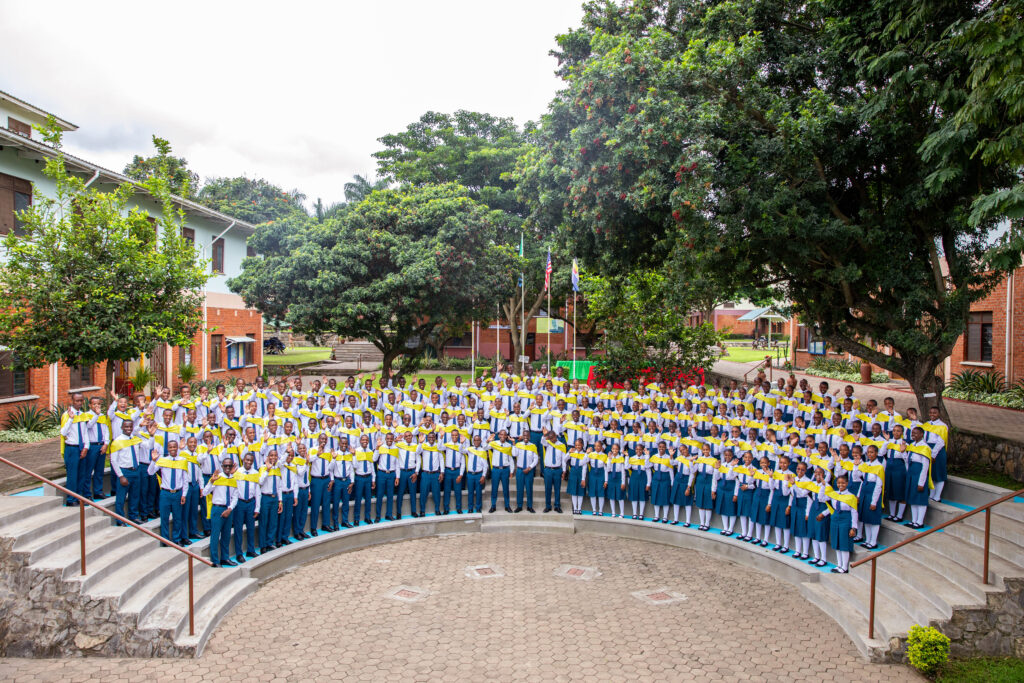
Future doctors, engineers, nurses and entrepreneurs. These were just some of the aspirations echoing around Smith Campus this month as students, sponsors and invited guests came together for one of the most anticipated events on the school calendar: the 11th Form 6 Graduation.
The graduation marks a key milestone in the Tanzanian education system, which is divided into three main stages: seven years of primary school (Standard 1 to 7), four years of secondary school at the Ordinary Level (Forms 1 to 4), and two years of Advanced Level secondary education (Forms 5 and 6).
The School of St Jude hosts three graduation ceremonies annually, corresponding to these three main levels, along with a special celebration for alumni completing tertiary education.
This year, 166 students proudly crossed the stage, bringing the total number of Form 6 graduates to 1,500+ since the first class in 2015.
Attendees enjoyed vibrant cultural performances by current students, tributes to dedicated staff members and reflections on the achievements of the Class of 2025.
A special highlight of the ceremony was a joint address by Angela Bailey, who was St Jude’s first volunteer teacher when the school opened in 2002, and her father, John Bailey, a long-time supporter, current board member and the school’s legal counsel since 1997. He sponsored the scholarship of one of this year’s graduating class.

“Life can take you to places you never imagined existed. To our sponsors and donors, we cannot say how much your support has helped us achieve our ambitions. We are grateful,” says Nickson, Form 6 graduate, in his farewell speech on graduation day.
“Our teachers, thank you for all the endless effort that you made towards our performance. Our parents, you have always been our pillars of strength. Thank you for seeing the light that sparkled in us.”
The Class of 2025 had much to be proud of, excelling in various extracurricular activities, particularly debate and public speaking.
Notably, graduate Mwajabu Hoya earned national recognition after winning gold and being named Tanzania’s best public speaker at the National Debate Championships. The school’s debate team also celebrated a major win, earning the title of Best Debate Team in East Africa in 2024.
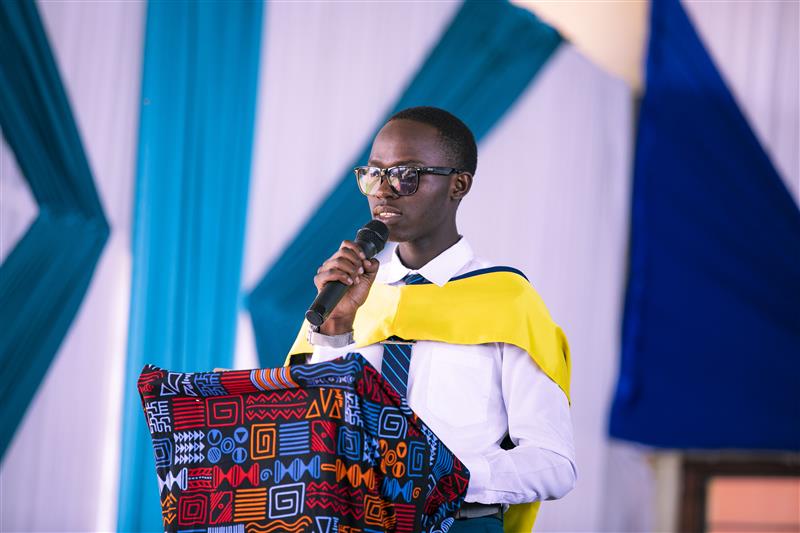
In another milestone, the Class of 2025 became the first in St Jude’s history to receive personal laptops earlier this year, a significant step in supporting their future academic and professional pursuits.
The next stage for graduates is pursuing higher education at various universities and colleges. Many choose to apply to the Beyond St Jude’s Scholarship Program (BSJSP), which supports graduates with tertiary education.
As part of this program, they will undertake community service placements for a year, volunteering as teachers in understaffed government schools, or at various placements throughout St Jude's. Then they go on to access higher education supported by St Jude’s sponsors and donors.
Through the holistic education offered at St Jude’s, the Class of 2025 has been able to reimagine a future filled with endless possibilities – for themselves, their communities and their country.